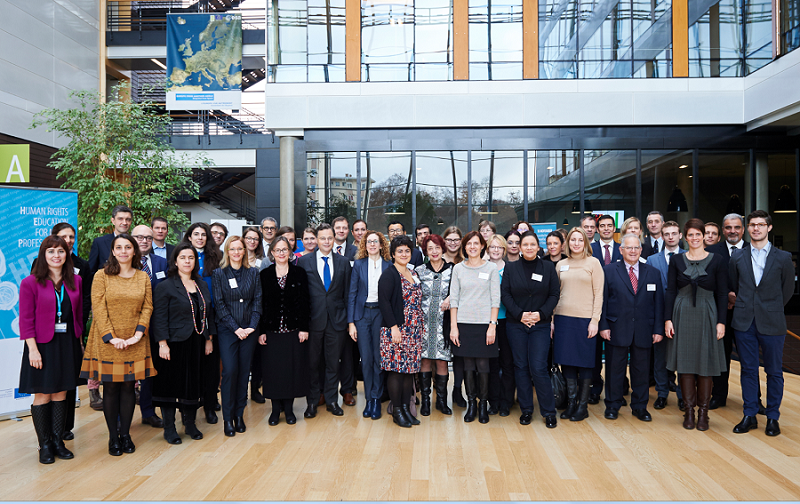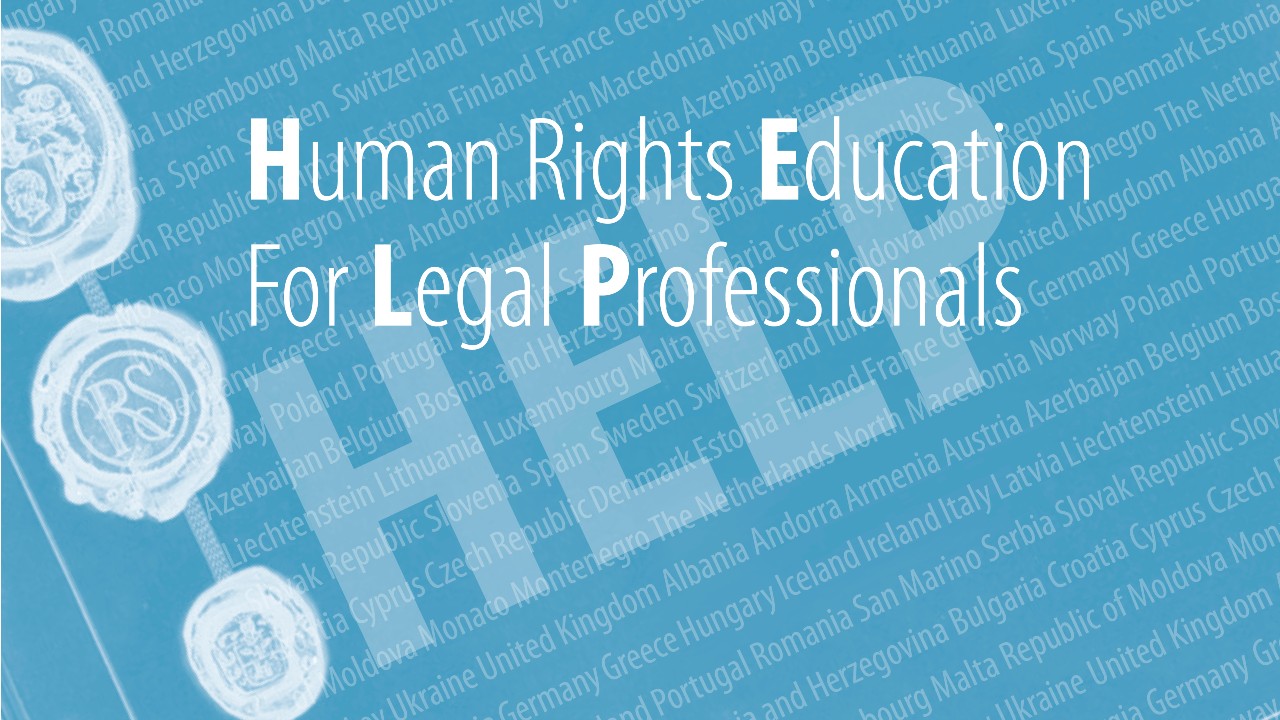For the second year, HELP contact points from national training institutions and bar associations from the EU met for 1.5 day in Strasbourg to (i) keep up to date with (legal) developments in priority areas for the EU, (ii) exchange best practices, and (iii) reinforce current and future cooperation among EU NTI and BA.
Tatiana Termacic, Head of the CoE Human Rights National Implementation Division, welcomed participants. She gave an overview of the European Programme for Human Rights Education for Legal Professionals, and stressed the boost provided by the EU-funded Programme “HELP in the 28” both in terms of the new courses/modules on key human rights issues - data protection, fight against xenophobia or homophobia, asylum, labour rights or personal integrity (bioethics) - and the rise in mutual trust among EU members of the HELP Network.
Marc Jorna, the new Head of the Judicial Training and e-Justice Unit in DG Justice, in his opening remarks, stressed the natural alliance between the EU and the CoE, both sharing values and strategic priorities, and the reach of the HELP Network across EU MS. He also briefed participants about the importance of Judicial Training in the EU and his Unit work.
The Head of HEP Unit, Natacha De Roeck focused on the strength of the HELP Network, the collaboration with European partners like EJTN, CCBE and the increasing demand from EU partners for more courses and use of the HELP methodology.
An update of the HELP in the 28 Programme ensued by its Coordinator, Eva Pastrana, with especial emphasis on the uniqueness of its courses, combining the CoE and the EU systems and case law, and their format: digital, interactive, practical and adapted to the busy workload of judges, prosecutors and lawyers.
The sessions then combined content and practice - including the presentation of the HELP (in the 28) website and social media- with lively participation from attendees and speakers. Among the latter, we highlight the session with ECtHR Judge Lopez Guerra, who made the link between how legal professionals are (s)elected and their (initial and continuous) training needs and shared his experience as judge and civil servant responsible i.a. of the creation of the Spanish Judiciary School.
Stephanos Stavros, Head of office of the Special Representative of the SG on migration and refugees gave a comparative overview of laws and practices by different EU countries when dealing with asylum-seekers, praising the fact that the HELP/UNHCR course on asylum (completed with the EU dimension thanks to ‘HELP in the 28’) is increasingly delivered in EU MS.
The role of the European Commission against Racism and Intolerance (ECRI) was presented by Denis Roth-Fichet, himself a key contributor to the HELP in the 28 course to fight racism, xenophobia, homophobia and transphobia.
Privacy Rights were extensively covered by Peter Kimpian, from the CoE Data Protection Unit, who also briefed participants about the modernization process of the CoE Convention 108, now sped up following the EU Reform adopted in April 2016. The latter has been fully incorporated in the existing HELP course, which, beyond EU countries, is also demanded by other CoE states.
The session by Nino Chitashvili focused on the European Social Charter and its mechanisms to protect social and economic rights, namely the quasi-judiciary European Committee on Social Rights and the collective complaints. She also explain most common violations of labour rights, in connection to the HELP course "Labour rights as human rights" which will be piloted in Lithuania, Greece, Portugal and Slovenia.
Laurence Lwoff and Katrin Uerpmann, Head and Lawyer of the Bioethics Unit, respectively, presented the work of the Unit, the relevance of the CoE Convention on Human Rights and Biomedicine and the case law of the Strasbourg Court, including recent updates which will be incorporated to the HELP in the 28 Course “Right to the Integrity of a Person (bioethics)”.
The session was closed by Mikhail Lobov, the Head of the Human Rights Policy and Co-operation Department, who insisted on the need to renew the partnership with the EU for the continuation of HELP actions in EU countries so that, together, we can better tackle new challenges like radicalisation, or new topics like procedural safeguards in criminal proceedings. The latter being an area where the CoE has been providing its expertise to the series of Directives adopted ensuring that minimum standards apply throughout the EU. He thanked HELP members -both contact persons and institutions- for their enthusiastic engagement and encourage them to also take on more responsibilities to ensure HELP training resources reach more legal professionals, including in the EU, where many problems exist.
An informal evening gathering also offered the chance to increase cooperation, both at individual and institutional level, particularly ahead of future plans of HELP for EU countries.





